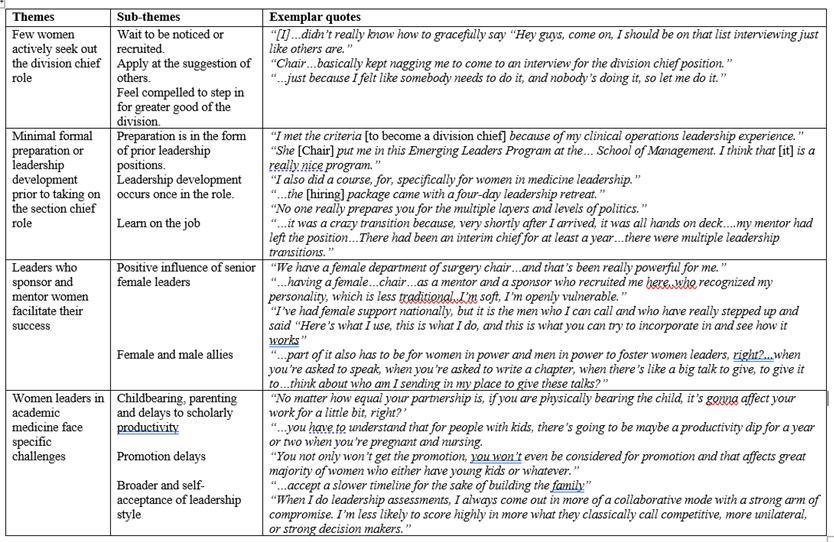Medical Education
Session: Medical Education 3
542 - “No one really prepares you:” Lived Experiences of Women Division Chiefs at a Large Tertiary Academic Medical Center
Friday, May 3, 2024
5:15 PM - 7:15 PM ET
Poster Number: 542
Publication Number: 542.253
Publication Number: 542.253
- JL
Jaspreet Loyal, MD MS
Associate Professor
Yale
Trumbull, Connecticut, United States
Presenting Author(s)
Background: Women represent a small but growing proportion of division chiefs in academic medical centers in the US. A division chief position is often a precursor to a more senior level leadership position. Understanding the experience of women division chiefs can help institutions better prepare to support their success in the role and potential career advancement.
Objective: We sought to understand the lived experience of women division chiefs in our institution, their path to leadership, facilitators and barriers to their success and views on the pipeline of women leaders.
Design/Methods: We conducted a qualitative study using semi-structured interviews of women division chiefs at a major academic medical center in the Northeast US from July 2022 to June 2023. We used the grounded theory approach and the constant comparative method until saturation was reached.
Results: We interviewed 18 women division chiefs from medical and surgical subspecialties. The following 4 major themes emerged (exemplar quotes in Table 1): (1) Few women actively seek out the division chief role; (2) Formal preparation or targeted leadership development prior to taking on the section chief role is lacking; (3) Leaders (both men and women) who sponsor and mentor women facilitate their success; (4) Women leaders in academic medicine face specific challenges including promotion delays and lack of recognition of their authentic leadership styles. Most participants had no formal onboarding to the division chief role. Participants were positively influenced by women in senior leadership roles within the institution (department chairs, medical school dean) and their sponsorship. Barriers to the pipeline include feeling undervalued in preceding leadership roles, navigating priorities at home and work and need for broader sponsorship.
Conclusion(s): Strategies to increase the number of women division heads may include more deliberate recruitment, succession planning, early leadership training, a structured and formal onboarding process, acceptance of authentic leadership styles among women and more practical ways to support parenting.

